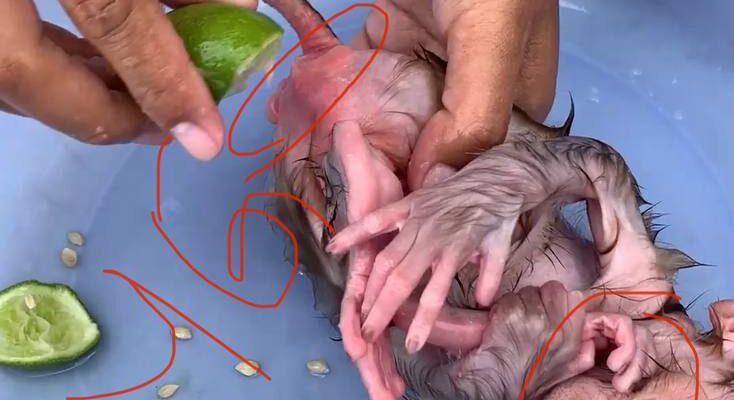In the pursuit of cleanliness and hygiene, humans have come up with countless methods for disinfecting surfaces, skin, and even pets. But one unusual topic that’s sparked curiosity—and concern—is the idea of cleaning a monkey with lemon juice to kill germs. While it might sound natural or even effective due to lemon’s antibacterial properties, the reality is far more complex and worth careful consideration.
The Appeal of Lemon as a Natural Cleaner
Lemon is widely recognized for its acidic nature and high vitamin C content. It has mild antibacterial and antiseptic properties, making it a common ingredient in natural cleaning solutions. In households, people use lemon to clean cutting boards, remove stains, and even disinfect kitchen surfaces.
This natural disinfecting ability is what leads some to believe lemon juice could also be used to clean animals, including monkeys. However, what works on countertops doesn’t necessarily translate to living creatures.
Why Lemon is Harmful for Monkeys
Monkeys, like humans, have delicate skin and mucous membranes—but theirs are even more sensitive in many areas, especially around the face, eyes, and genitals. Applying lemon juice directly on a monkey’s skin can cause irritation, burning, and long-term skin damage.
Moreover, if the juice gets into the monkey’s eyes or is ingested, it can lead to serious health complications. Unlike cleaning agents designed for animals, lemon juice is unregulated and unpredictable in its effects on their unique biology.
Safe Alternatives to Clean Monkeys
If you’re caring for a monkey in a sanctuary, zoo, or licensed rehabilitation center, hygiene is undoubtedly important. But it must be approached safely:
- Use veterinarian-approved animal shampoos: These are specifically formulated to maintain the natural oils in a monkey’s skin and fur while eliminating dirt and bacteria.
- Regular grooming: Just like humans, monkeys benefit from brushing and grooming, which keeps their coat clean and reduces the risk of infection.
- Professional vet care: Monkeys should receive regular checkups from an exotic animal veterinarian who can provide expert advice on hygiene and general health.
The Ethics and Responsibility of Exotic Animal Care
It’s essential to emphasize that monkeys are not pets and require expert care, both physically and psychologically. Attempts to clean them with household items like lemon juice are not only misguided but potentially abusive.
Organizations that work with monkeys—such as wildlife rescue centers or accredited zoos—follow strict protocols for animal hygiene. They never rely on home remedies but instead use scientifically backed methods for animal wellness.
Final Thoughts
The idea of cleaning a monkey with lemon to kill germs may stem from good intentions, but it’s neither safe nor effective. While lemon may be a powerful natural cleaner in the kitchen, it has no place in exotic animal care. For anyone responsible for a monkey’s well-being, the best route is professional veterinary guidance, approved products, and a deep respect for the animal’s needs.



